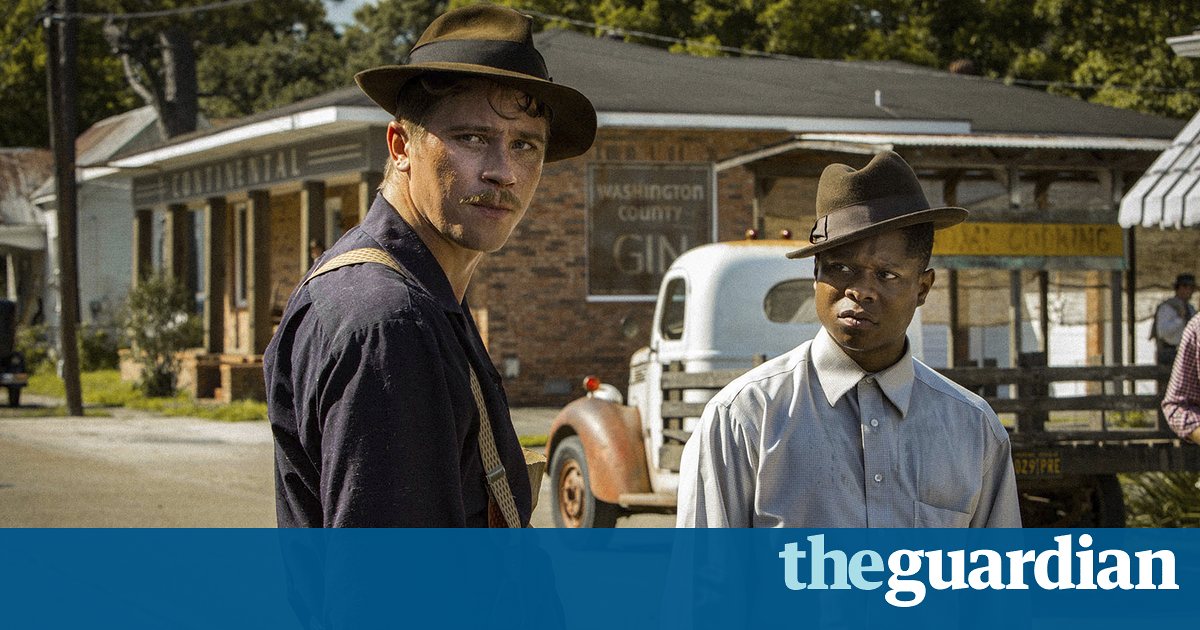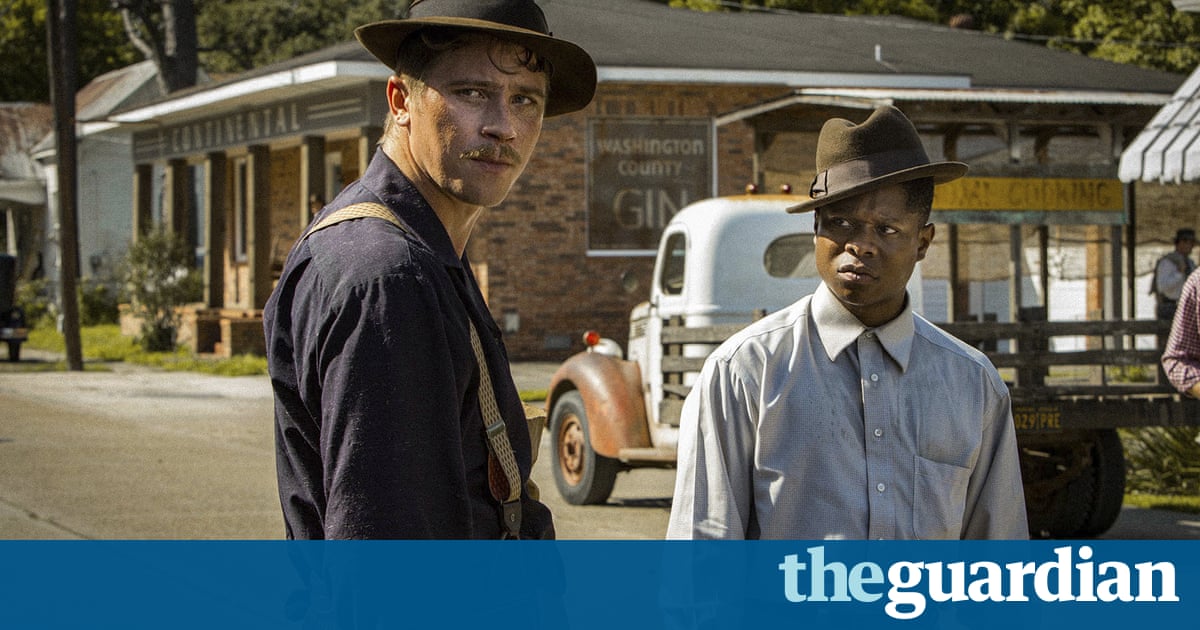Mudbound review a masterly, meaningful tale from Americas divided past

Premiered on Saturday, a day of million-woman marches, Dee Reess masterful film of racial divide in 1940s Mississippi says much that we all might heed

I dreamed in brown, Carey Mulligans Laura McAllan recalls in voiceover, commenting from some unknown point in time about a life on a farm in the Mississippi delta. Its a life spent in struggle with the land, one bad crop away from hardship, only clean on Saturdays, forever sweeping death from her doorstep. The country life, she calls it.
Its not just Laura whose thoughts we hear in Mudbound, Dee Reess masterful adaptation of Hillary Jordans 1940s-set novel. This is a giant of a story, very much the soul of America in microcosm, and as such each of the players deserves and gets our sympathy. Well, everyone except Pappy, Lauras racist father-in-law whose interment in a hastily dug grave bookends the story.
When we meet Laura, she is 31 and destined for spinsterhood, only for Henry (Jason Clarke) to whisk her away to matrimony. Whether she loves him is debatable, but she does enjoy being needed. With Henrys brother Jamie (Garrett Hedlund) flying bombers over Germany, Henry buys a farm and begins working the land. On the property is a sharecropper family headed by Hap (Rob Morgan) and Florence (Mary J Blige). Their son, Ronsell (Jason Mitchell), is fighting in a tank division.
Slowly, Rees threads the needle of an extraordinary drama, rising with the hardships of the period. Mixing poetic voiceover and gorgeous cinematography, time and again the frame fills with extraordinary observations and grace notes. A Walker Evans-inspired frame here, a few seconds of Blind Willie Johnson on the soundtrack there. No, I cant say for certain that this is what 1940s Mississippi was like, but Mudbound just seems so lived-in and so right.
The two families live side-by-side in an uneasy peace. They have common struggles, but the power balance is hardly subtext. This is a world where some stores have Whites Only signs out front. Things change when both sons return from the war and Jamie discovers that Ronsell is the only one in town with whom he can relate. His casual cross-racial camaraderie may seem like a friendly gesture but, with his privileged blinders on, Jamie doesnt quite realize how his conviviality puts his new chum in danger.
A hundred well-placed plot breadcrumbs lead us to our perfect ending, but apart from scriptwriting craft Rees gets in some bravura scenes of high tension. There are tank battles, dogfights, torrential rainstorms and tense scenes of multigenerational whiskey drinking. And then there are the performances.
Mudbound is a rarity: a true ensemble piece with no main character. Everyone is terrific, but Rob Morgan as Hap is particularly astounding. A wise, honest and hard-working man who preaches on Sunday in a half-built church, Morgan imbues Hap with a farmers honesty. The livelihood of his family is directly dependent on how much of his back he puts into everything.
A scene in which he reads one of Ronsells letters back from the war is exactly the type of thing a lesser film-maker would trim. It doesnt add anything to the plot, but the way in which this man with no formal education slowly calls out to all his other children is a moment of profound warmth.
Its a moment shattered, of course, by Henry banging on the door with a problem. Henry doesnt know hes interrupting, but it would never dawn on him to ask. Moreover, Hap could never tell Henry to come back later. Thats just not the way things worked down there.
Americas racial divide is different in 2017, but that doesnt mean we still cant learn from our past. Mudbound debuted at Sundance the same day women led demonstrations around the world to protest against the repulsive policies of Donald Trump. The film depicts the social shakeup after the trauma of the second world war. If we are indeed in the midst of a seismic change, hopefully new attitudes are what lie further ahead.